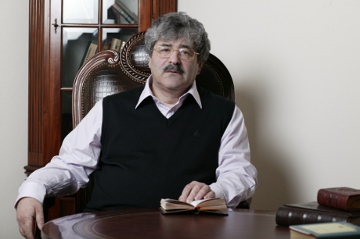
Part 2
Brainstorming is a remarkable American invention, but the practice may be untimely amidst serious fighting. At the moment the war against the Talibs in Afghanistan is raging while, according to European expert estimates, the extremist groups are at the peak of power and therefore unreceptive to negotiation offers. With the Talibs entrenched in Afghanistan as well as in Iraq and Somalia, even seemingly sober plans for political reform in Afghanistan stand no chance.
Unlike Great Britain and France, the US has no colonial experience, but it must be credited with learning fast. At present Washington is demonstrating an unprecedented level of tolerance to local customs and traditions in Afghanistan. Aware of the Afghan population's adherence to tribal independence and of its resulting allergy to hypercentralization of governance, Washington is increasingly leaning towards the model of distributed administration for the country. Currently the US is looking into the possibility of considerable autonomy for Afghanistan's provinces. The essentials of the approach are:
-
Local administrations must not host terrorist groups on their territories.
-
Territorial disputes between provinces are a taboo.
-
Local administrations should fight corruption and should not foster drug production.
The political project also stipulates that Afghanistan's provinces would have no right to develop natural resources without the central government's sanction. All of the above could have combined into a viable plan absent the extremist groups and their influence over the population and the economy but makes zero sense otherwise. Given the available realia, granting autonomy to local tribal elites would immediately translate into their merger with the Talibs disguised as national reconciliation, ignite hostilities between Afghanistan's ethnic groups, and ultimately put the country on the brink of civil war. Modern terrorism being a network phenomenon, Afghanistan organized as a network of autonomies would automatically become an environment extremely hospitable to Al Qaeda.
The recent NATO-Russia anti-drug raid in Afghanistan caused a sensation in the media and triggered heated debates over Russia's potential Afghan comeback which neither diplomacy chief S. Lavrov 's declaration that Russia would never get drawn into the military conflict in Afghanistan nor the NATO statement that Russia was not invited to join the Western coalition's Afghan campaign could quell. Instead, the myth came into being that a breakthrough in the NATO-Russia relations linked to the Afghan problem was on the horizon and that practical aspects of the matter would occupy the top line on NATO's Lisbon summit agenda. In the process, the Western media largely overlooked Russian envoy to the UN V. Churkin's recommendation that NATO subject its Afghan strategy to a profound overhaul. He said in New York that that the objective behind anti-terrorist activities should be to exterminate terrorists and radicals rather than to expel them and thus let them regroup elsewhere, particularly north of the regions where they used to maintain bases. Bloggers momentarily reacted with an outpouring of emotions, the central theme being that the epicenter of the Afghan unrest was drifting to the north, towards Central Asia and Russia, threatening to get Russia involved regardless of Moscow's political preferences.
What contours should Russia's response have?
-
Relying on the forces of the Collective Security Treaty Organization Russia should maximally tighten the border security.
-
The southern frontiers of Russia's Central Asian neighbors should be upgraded technically to become immune to drug trafficking.
-
A reset in the relations with the region's countries should enable the creation of an anti-drug coalition, importantly, including China as one of the countries affected by the trafficking of heroin from Afghanistan.
-
Moscow should float an initiative to establish an international foundation charged with the mission of countering the Afghan drug threat.
-
Karzai's administration should be kept under permanent pressure to take tough anti-drug measures necessarily including drug crops eradication.
-
The UN should be urged to develop a program of helping Afghanistan revert to normal agriculture.
Currently Afghanistan, the country known as the stumbling block to the advancement of empires, is a source of trouble and human sufferings across the world. Even counting the September 11 death toll, the Afghan drug flow far exceeds in lethality the global terrorist activity, and neither catching Bin Laden nor altogether routing Taliban would put an end to hostilities. Unless the drug lords are tamed, the war in Afghanistan is going to last as long as they want it to.
read more in our Telegram-channel https://t.me/The_International_Affairs

 14:46 12.02.2010 •
14:46 12.02.2010 •






















